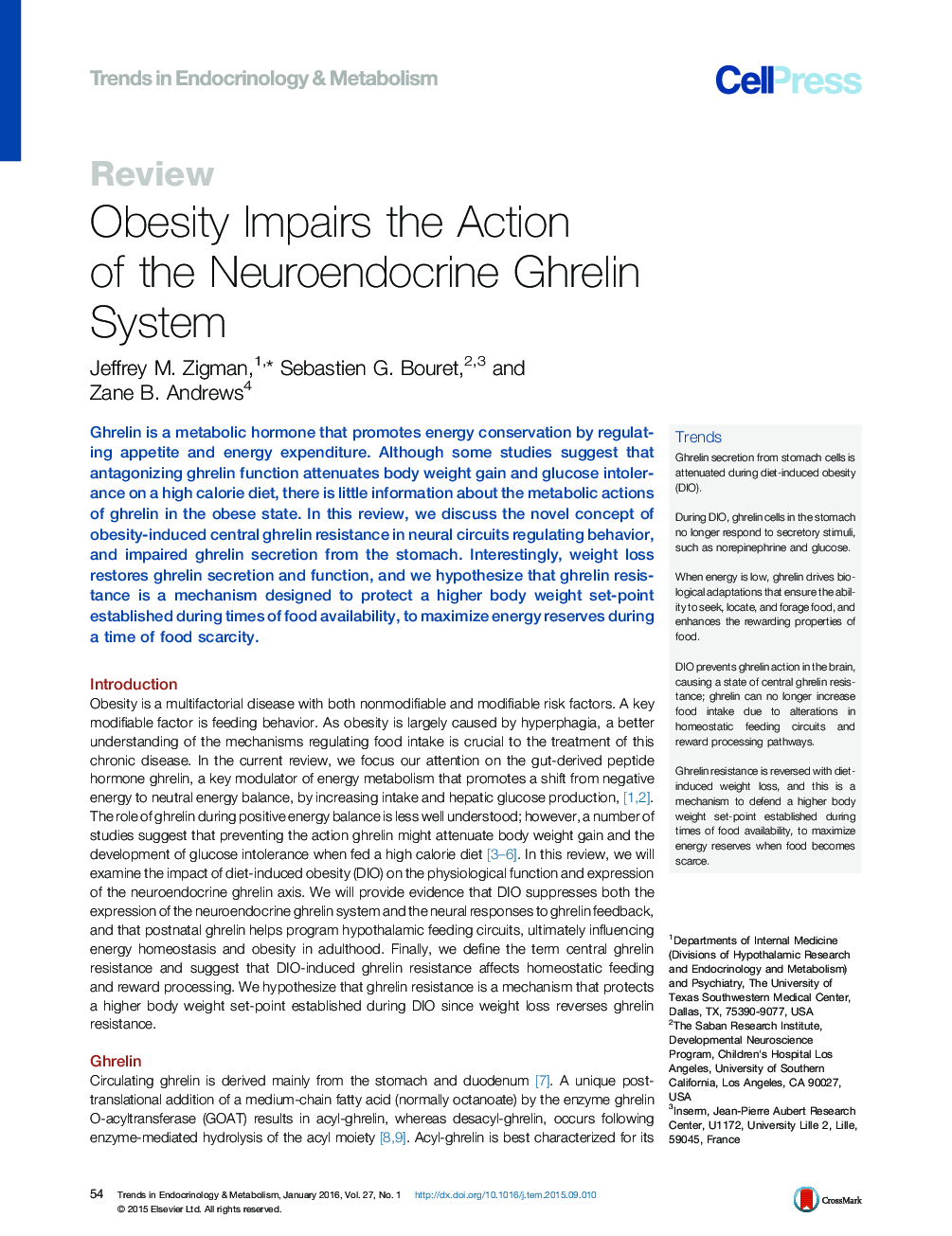| Article ID | Journal | Published Year | Pages | File Type |
|---|---|---|---|---|
| 2810132 | Trends in Endocrinology & Metabolism | 2016 | 10 Pages |
Ghrelin is a metabolic hormone that promotes energy conservation by regulating appetite and energy expenditure. Although some studies suggest that antagonizing ghrelin function attenuates body weight gain and glucose intolerance on a high calorie diet, there is little information about the metabolic actions of ghrelin in the obese state. In this review, we discuss the novel concept of obesity-induced central ghrelin resistance in neural circuits regulating behavior, and impaired ghrelin secretion from the stomach. Interestingly, weight loss restores ghrelin secretion and function, and we hypothesize that ghrelin resistance is a mechanism designed to protect a higher body weight set-point established during times of food availability, to maximize energy reserves during a time of food scarcity.
TrendsGhrelin secretion from stomach cells is attenuated during diet-induced obesity (DIO).During DIO, ghrelin cells in the stomach no longer respond to secretory stimuli, such as norepinephrine and glucose.When energy is low, ghrelin drives biological adaptations that ensure the ability to seek, locate, and forage food, and enhances the rewarding properties of food.DIO prevents ghrelin action in the brain, causing a state of central ghrelin resistance; ghrelin can no longer increase food intake due to alterations in homeostatic feeding circuits and reward processing pathways.Ghrelin resistance is reversed with diet-induced weight loss, and this is a mechanism to defend a higher body weight set-point established during times of food availability, to maximize energy reserves when food becomes scarce.
